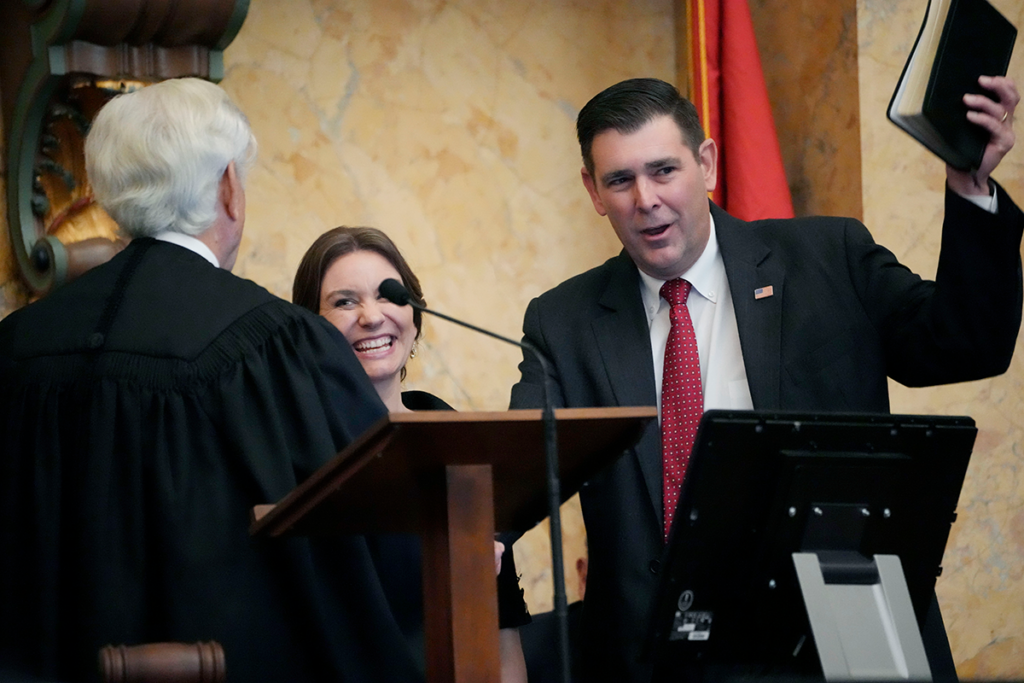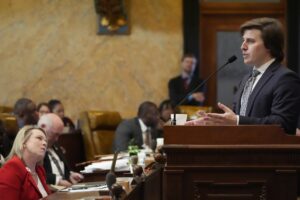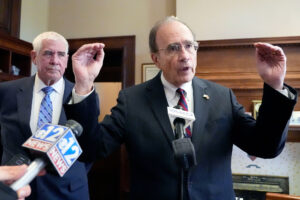Mississippi Republican lawmakers who are trying to protect in-vitro fertilization treatments risk legalizing “back door abortion” and the “cloning and selling of ‘genetic materials,’” Mississippi Agriculture Commissioner Andy Gipson is claiming.
After an Alabama Supreme Court ruling on Feb. 29 that found frozen embryos classify as people forced fertility clinics in the state to cease providing IVF treatments, Mississippi House lawmakers began efforts to protect access to assisted reproductive technology health-care under State law.
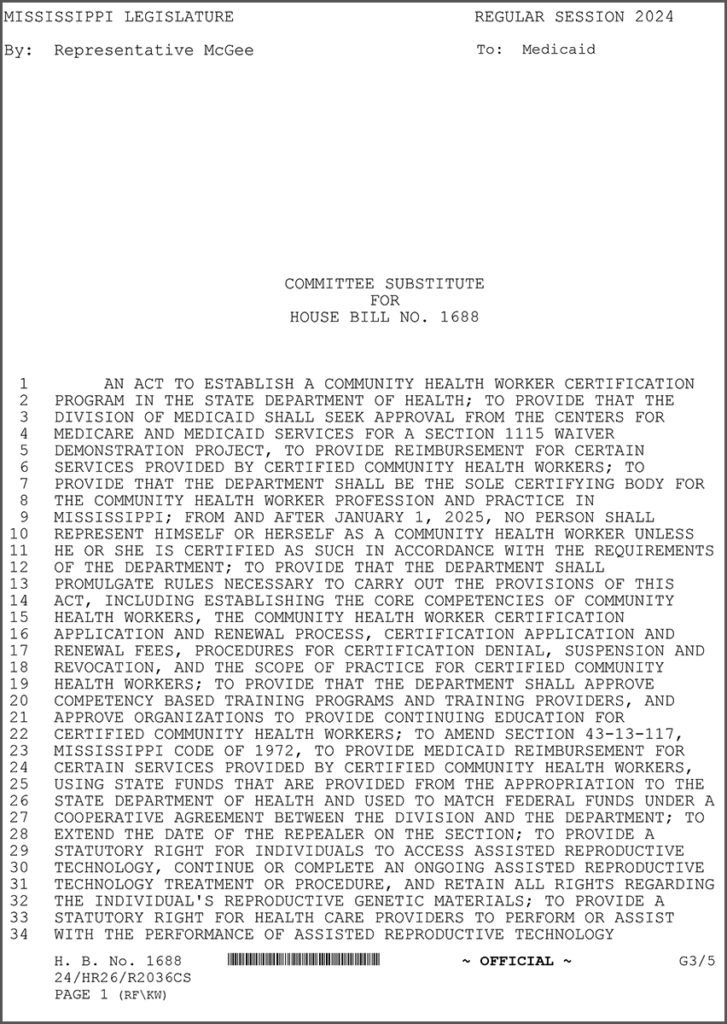
House Bill 1688 originally focused on certification for community health-care workers, but House Medicaid Committee Chairwoman Rep. Missy McGee, R-Hattiesburg, added Section 6 after the Alabama ruling. That section, called the “Access to Family Building Act,” says health-care providers should be able to help patients access these services without “limitations.”
“This is the greatest assault on the cause of life that we’ve seen in Mississippi in a long time,” Gipson, who is also an anti-abortion Baptist preacher from Simpson County, said in a video he posted to Facebook on March 7.
The bill says that “a health insurance provider has a statutory right under this section to cover assisted reproductive technology treatments or procedures.”
In a follow-up social-media post, Gipson said that IVF is already legal in Mississippi and not under threat, so Section 6 of H.B. 1688 is unnecessary. McGee disagreed.
“As someone who fashions himself as pro-life, the disdain with which he speaks of ‘assisted reproductive technology’ shows how little he regards the lengths that some families have to go through to even start a family,” McGee wrote in posts on Facebook and Twitter in response to Gipson on March 7. “These are Mississippians who endure some of the most heart-wrenching, painful and costly procedures.”
‘There Is Nothing About Cloning or Abortion’
Mississippi Reproductive Freedom Fund Executive Director Laurie Bertram Roberts said that many evangelical, anti-abortion advocates do not support assisted reproductive technology because it allows single people and LGBTQ+ people to have children without being in a cisgender, heterosexual relationship.
“If it was only benefiting white, Christian two-parent families, cisgender heterosexual families, then this wouldn’t be an issue. We wouldn’t even be talking about this right now, except for some of the people who are scared of cloning,” Roberts told the Mississippi Free Press on Wednesday.
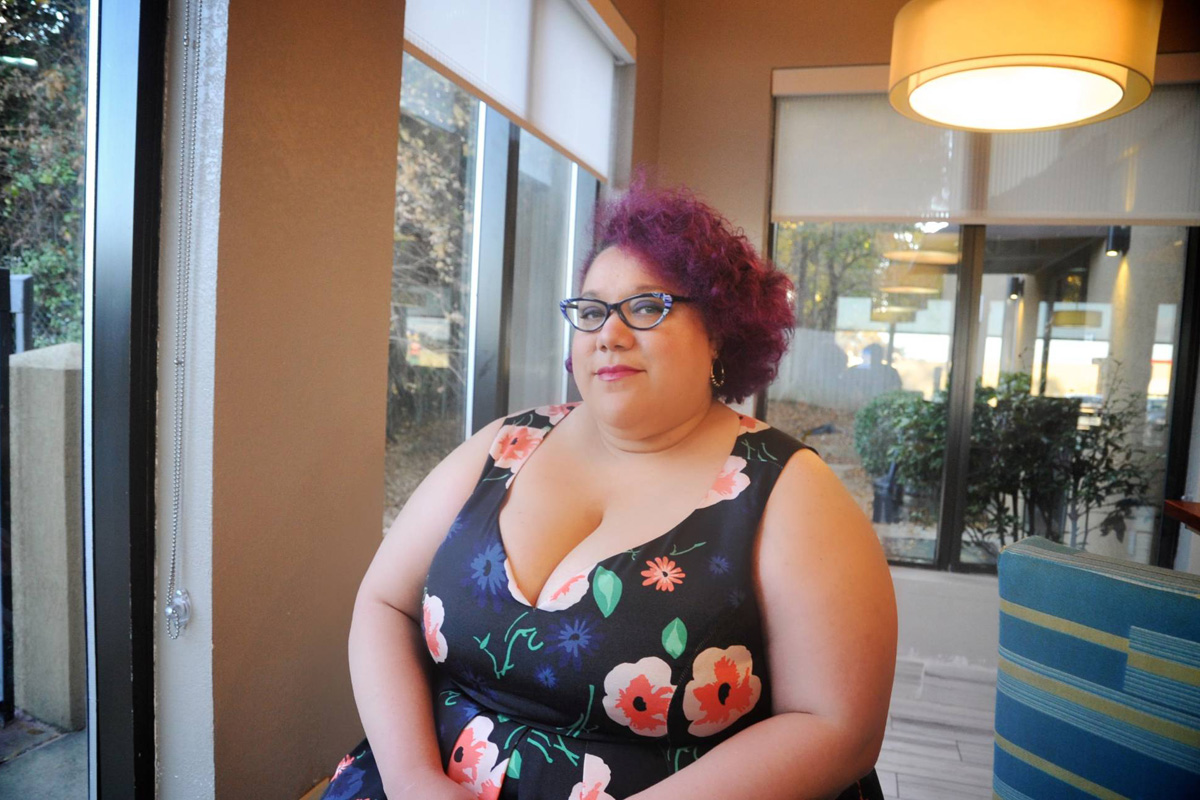
Gipson claimed in a follow-up social-media post that the bill is “virtually the same legislation” as a reproductive health-care bill U.S. Sen. Tammy Duckworth, D-Illinois, cosponsored nationally. He did not name the bill in his post but was likely referring to the national Reproductive Healthcare Accessibility Act, which would make it easier for people with disabilities to obtain sexual and reproductive health care—including safe access to abortion. Mississippi’s H.B. 1688 does not mention the word “abortion.”
McGee rejected that argument in a follow-up post, noting that H.B. 1688 neither includes language regarding abortion nor cloning.
“It’s clear that Commissioner Gipson didn’t read the actual bill,” she wrote on March 7. “No, it didn’t copy a U.S. Senate bill. There’s no preemption of the Religious Freedom Restoration Act. There is nothing about cloning or abortion.”
Gipson cited fears in his post that the U.S. Department of Health and Human Services would have to get involved to define “assisted reproductive technology.” But the term already has a definition under 42 U.S. Code Section 263a-7(1).
“The term ‘assisted reproductive technology’ means all treatments or procedures which include the handling of human oocytes or embryos, including in vitro fertilization, gamete intrafallopian transfer, zygote intrafallopian transfer,” 42 USC Section 263a–7(1) says.
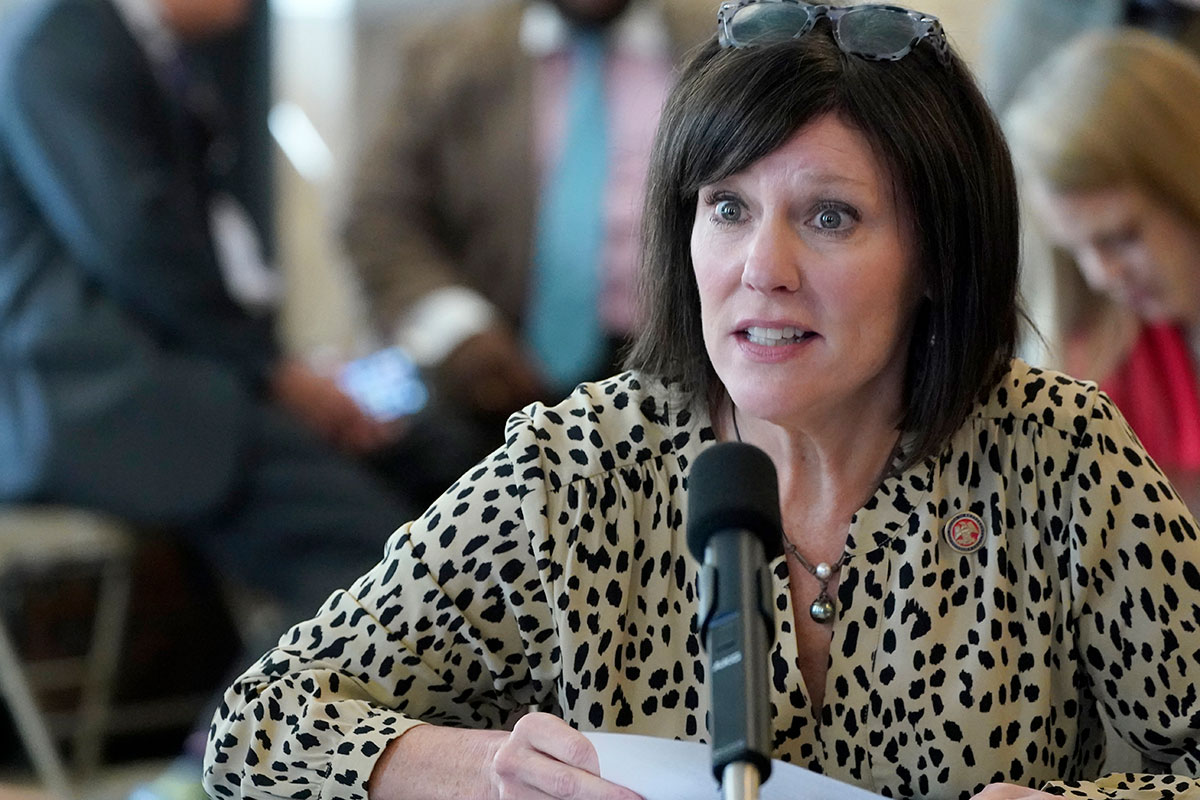
Gamete intrafallopian transfer is when a doctor injects a mixture of eggs and sperm into a woman’s fallopian tubes. Zygote intrafallopian transfer is like gamete intrafallopian transfer because the eggs and sperm are injected into the fallopian tubes using a similar process to IVF.
“People should have the right to create their families without the state interfering and saying, ‘No you cannot use this tested, long-existing technology to create your families’—especially when allegedly the anti-abortion side wants people to have more babies and for more families to be created,” Roberts said.
The Mississippi Free Press attempted to contact McGee and Gipson for separate interviews but did not receive a response by press time.
Fundamentalist Group Behind IVF Opposition
In his video, Gipson said he had spoken with several “pro-life” groups about H.B. 1688, including the American Family Association—a conservative, Christian fundamentalist organization based in Tupelo, Miss., that opposes abortion, pornography and LGBTQ+ rights. The AFA calls H.B. 1688 a “dangerous, anti-life bill.”
“On its face, the bill has to do with Medicaid, but a new section (6) was inserted into the bill that would give patients and doctors the unrestricted right to destroy unborn children as part of “assisted reproductive technology” (ART) procedures,” the organization’s website says.
The House Medicaid Committee approved the amendments to H.B. 1688 on Feb. 29. McGee must present the bill on the House floor for a vote by today’s deadline or else it will die without a vote.
Alabama Gov. Kay Ivey signed a bill into law on March 6 that granted legal protection to IVF clinics in her state, allowing them to reopen.
Mississippi Rejected Personhood Amendment in 2011
In 2011, Mississippi voters rejected the Personhood Amendment in a 58%-42% vote. That effort, if it had succeeded, would have defined a person as “every human being from the moment of fertilization, cloning or the functional equivalent thereof” in the Mississippi Constitution.
Opponents warned at the time that, along with banning all abortions, it would have also banned access to some common forms of birth control and in-vitro fertilization.
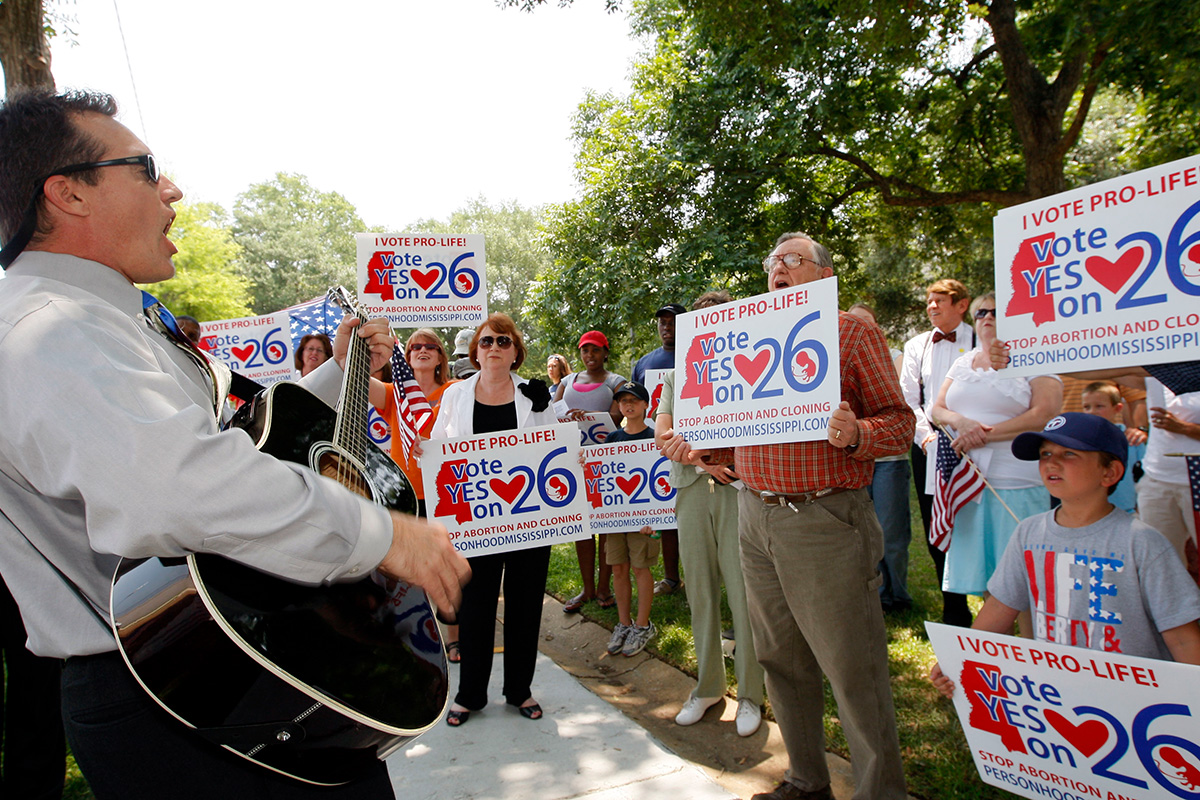
Roberts said Gipson’s comments were “steeped in fetal personhood” that the anti-abortion movement has tried to enact since 1973.
“You’re generally going to lose some embryos in the process or have leftover embryos that you may not want to give to another person in what they’re calling embryo adoption,” she said. “It’s valid for you not to want your DNA, your genetic material, your potential child out with strangers.”
After former President Donald Trump appointed three new justices to the U.S. Supreme Court who provided the votes to overturn Roe v. Wade and federal abortion rights in 2022, the State of Mississippi began enforcing a 2007 law that banned nearly all abortions. Mississippi’s only abortion clinic closed its doors in July 2022.


